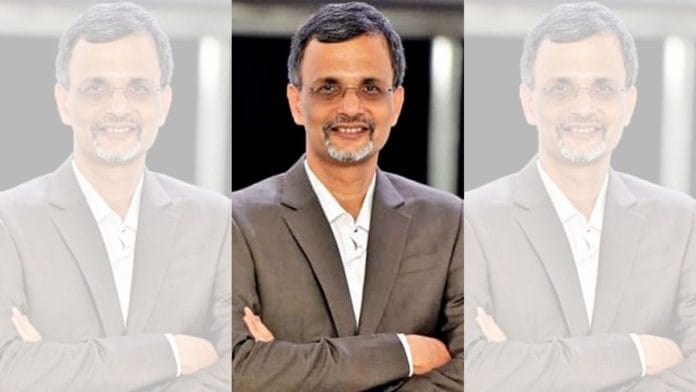Kolkata: Chief Economic Advisor (CEA) to the government V Anantha Nageswaran said that India is in a stable situation and the growth momentum is good despite the multiple crises taking place simultaneously and getting entangled with each other.
Speaking at the annual session of the Indian Chamber of Commerce (ICC) virtually, the CEA said that the world is passing through a ‘polycrisis’, which is multiple crises of high inflation, tightening of monetary policy, high interest rates, slowdown in China which affected global supply chain, and the Russia-Ukraine war.
“The challenges that the country is facing are unprecedented since World War II. But India is in a stable situation and the growth momentum is good. India will have a growth rate of 6.5 per cent to seven per cent in 2022-23, which is considered to be good despite a high inflation rate of 7.4 per cent,” he said.
Nageswaran said that what India needs at the moment is to maintain macroeconomic stability, augment foreign exchange reserves and their judicious use, and finance the trade deficit due to high imports of crude oil.
“Financing the trade deficit is a challenge for the country caused by high crude imports. The flow of FDI is steady while portfolio investments have become volatile as the USD is becoming attractive due to high interest rates in the United States,” he added.
The CEA said that although India has become the fifth-largest economy in the world, the country’s per capita income needs to increase. Nageswaran said there are signs of recovery of employment in the formal sector and there are indications that investments are picking up.
“The balance sheets of banks and corporates look better and trimmed and not bloated,” he said adding that NPS of lenders has also declined.
The banks are lending now and credit is rising at 17 per cent, Nageswaran said.
He said that in the immediate past, the MSME sector had been given targeted support in the form of credit guarantees, while several government schemes like the PM Garib Kalyan Yojana ensured social stability in the country.
Nageswaran said privatisation has come back into the lexicon of policymakers after 20 years.
“Privatisation has come back into the policy framework after 20 years. It is still work in progress and will take some time. Many stakeholders are not feeling comfortable with it. There is a need to unlock enterprise efficiency and the states will also have to come on board,” he said.
The National Monetisation Plan (NMP) of the government has the potential to unlock Rs six lakh crore by monetising assets of the non-productive PSUs, he stated.
The CEA also said that the northeastern states have to strengthen their economies through the services sector, agricultural produce and tourism.
Digitisation has helped formalise the Indian economy and the digital infrastructure is both in the government and private hands, which is the right balance, he said.
This report is auto-generated from PTI news service. ThePrint holds no responsibility for its content.
Also read: Retail inflation rate expected to decelerate after September, analysts say






